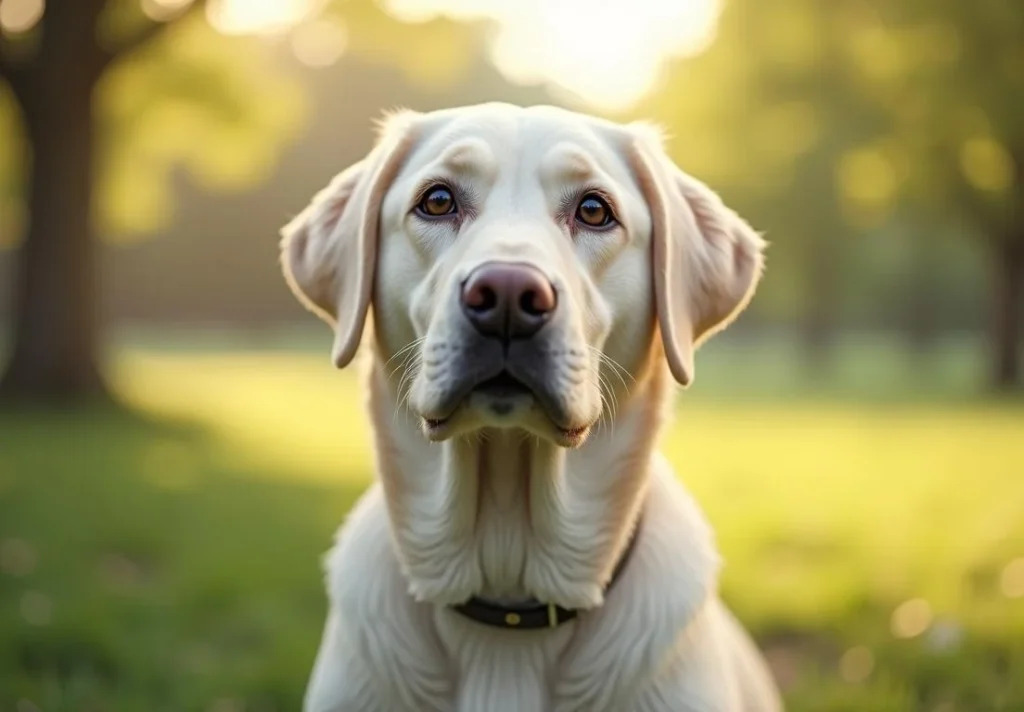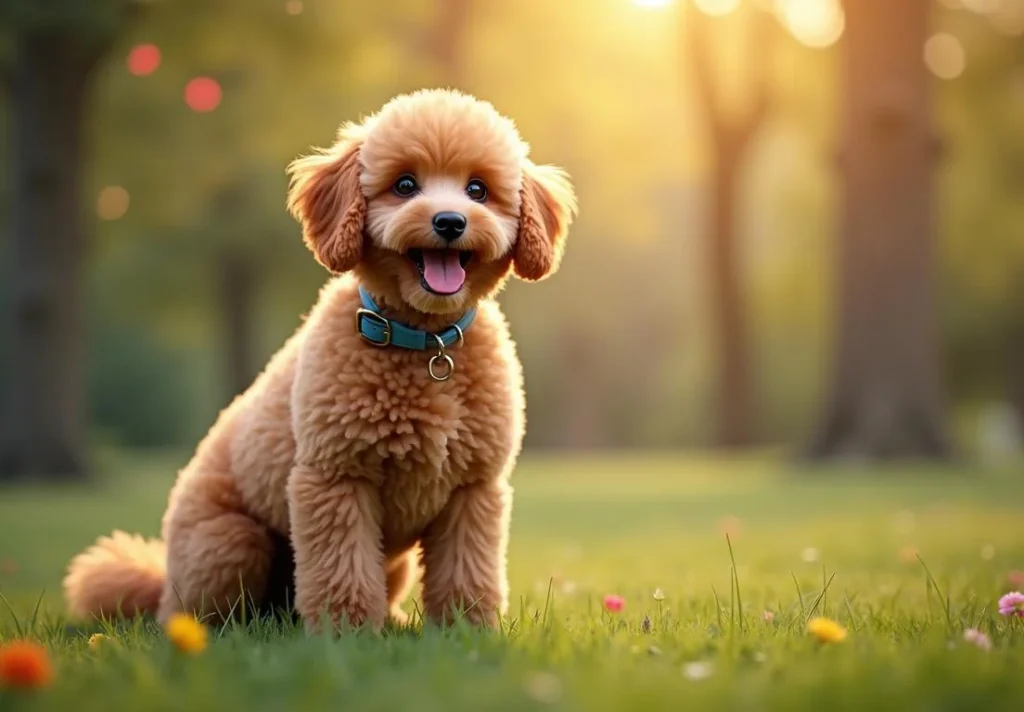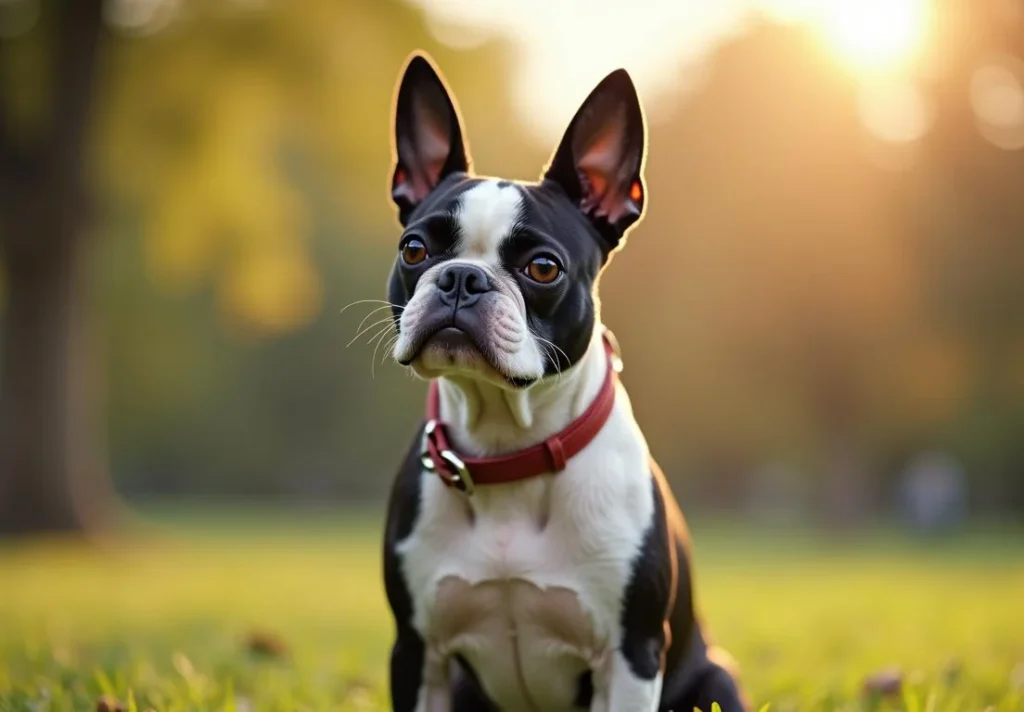Choosing a dog is a monumental decision, especially for first-time owners. The right breed can make all the difference in your experience, from companionship to training ease.
Some dog breeds are just more beginner-friendly than others, making them perfect for those new to the world of pet ownership. These breeds tend to be adaptable, trainable, and have gentle temperaments, ensuring that your first foray into dog ownership is a joyful one. Curious about which breeds top the list? There’s a treasure trove of insights waiting for you further down!
1. Labrador Retriever

Labrador Retrievers are truly one of the best companions you can find. With their infectious friendly nature and darting enthusiasm, these dogs often excel in homes full of activity. They’re not just playful; they’re also well-known for their intelligence and eagerness to please, making them highly trainable. Basic commands like “sit” and “stay” can be taught quickly, and that’s a huge plus for first-time owners who might feel overwhelmed by the training process.
Another bonus? Their adaptability means they can thrive in various living conditions, be it a spacious house or a cozy apartment. However, it’s essential to give them regular exercise—like daily walks or engaging playtime—to keep them happy and healthy.
2. Golden Retriever

Golden Retrievers shine in homes that value companionship and loyalty. Their gentle demeanor makes them incredible family dogs and they typically do well with children and other pets. You’ll find they have an innate ability to bond with their humans, showing love and affection in unique ways. They’re also quite intelligent, which plays a big role in their trainability.
For first-time owners, setting up a routine for training can make all the difference. Golden Retrievers often thrive on positive reinforcement, so using treats and praise can turn lessons into fun shared experiences. Plus, their abundant energy means that regular outings—like trips to the local dog park—are not just beneficial, they’re a joy for everyone involved.
To make things even easier, consider engaging them in activities like retrieve games or agility training. These not only promote bonding but also help channel their energy in constructive ways.
3. Beagle

Beagles are quite the charmer! Their small size makes them perfect for apartments, but don’t be fooled; their big personalities are hard to miss. These dogs are friendly, curious, and naturally social, which makes them a hit with families and first-time owners. They’re a breed that loves to explore, so expect a daily walk or two.
One aspect to keep in mind is their sense of smell; Beagles were originally bred as hunting dogs. This means they can easily get distracted by interesting scents. A well-fenced yard is a good idea to keep them safe while they sniff around. They’re relatively easy to train, but it’s essential to use positive reinforcement to keep them engaged and motivated.
Make sure to give them regular exercise to channel their energy, as they can become bored and mischievous without it. Overall, their affectionate nature and low grooming needs make them an ideal choice for new dog owners.
4. Poodle

Poodles come in various sizes—Standard, Miniature, and Toy—offering flexibility for different living situations. Smart and eager to please, Poodles are often ranked among the most intelligent dog breeds, making training a breeze. They catch on quickly, which is great for first-time owners who may feel overwhelmed.
Another key benefit is their hypoallergenic coat. If allergies have been a concern for you or anyone in your household, Poodles can be a fantastic option. Their curly fur doesn’t shed much, which helps keep allergens at bay.
In terms of activity, Poodles thrive on mental and physical stimulation. They enjoy interactive games, agility training, or even simple fetch in the backyard. Make a point to engage them regularly to keep boredom at bay. It’s also smart to schedule regular grooming sessions to keep their coat healthy and tangle-free. Overall, Poodles not only adapt well to various living environments but also bring a unique combination of intelligence and charm that can brighten any home.
5. Bichon Frise

The Bichon Frise stands out as an excellent choice for first-time dog owners. Known for their playful personality and affectionate nature , these little fluffballs are incredibly sociable. They adapt easily to various living situations, whether it’s a small apartment or a spacious home with a yard.
Training is typically a breeze due to their eagerness to please and high intelligence. Regular positive reinforcement works wonders.
Plus, their low-shedding coat makes them a good pick for folks with allergies, though brushing is necessary to keep those curls looking sharp. This breed thrives on companionship, so be ready for some delightful playtime and cuddles. If you want a dog who brings cheer to your home, the Bichon Frise might be the perfect fit.
6. Cavalier King Charles Spaniel

The Cavalier King Charles Spaniel is all about love and companionship. With their soft, expressive eyes and happy demeanor, they’re designed to be your best friend. These affectionate dogs bond quickly with their owners and are incredibly adaptable, making them ideal for first-time pet parents.
Cavaliers have a gentle disposition and generally get along well with children and other pets, which is a big plus if you have a family. Their moderate exercise needs—like daily walks and some playtime—mean you can easily fit their activity into your routine without feeling overwhelmed.
Here’s a unique angle: these dogs often thrive on routine and structure. Establishing a consistent schedule for feeding, walking, and play can help ease anxiety and build trust, which is particularly beneficial for a new owner learning the ropes. They love being part of family activities, so integrating them into your lifestyle will make for a rewarding companionship.
7. Shih Tzu

Small, sturdy, and utterly delightful, Shih Tzus make for fantastic first-time pets, especially for those in apartments or smaller homes. Their friendly and affectionate disposition means they thrive on companionship, and they’re known for being quite social.
One of their standout features is their calm demeanor. They don’t require excessive exercise; a couple of short walks and some playtime will keep them happy. Regular grooming is essential to keep their luxurious coats in shape. And while they can be a bit stubborn during training, they respond well to positive reinforcement. Teaching basic commands can be a rewarding experience—plus, it helps to strengthen the bond between you two.
An interesting point to consider is their health needs. Shih Tzus can be prone to certain health issues, such as breathing problems due to their brachycephalic (flat-faced) nature.
Keeping them cool and well-hydrated, especially in hot weather, is crucial. Taking these aspects into account will help ensure your little companion enjoys a happy and healthy life.
8. Dachshund

With their distinctive long bodies and short legs, Dachshunds certainly catch the eye. They’re not just cute; these dogs pack a lot of personality into a compact frame, making them ideal for first-time dog owners. Despite their size, they’re often full of energy and curiosity, requiring regular exercise to keep them stimulated.
Socialization is key with Dachshunds. Introducing them to different environments, people, and other pets early on will help prevent any unwanted behaviors. They’re generally affectionate and loyal, forming strong bonds with their families.
Dachshunds are also quite trainable, but sometimes their stubborn streak can surface. Using treats and patience works wonders here. Interestingly, their unique body structure comes with a health caveat: they can be prone to back issues, so avoiding excessive jumping or rough play is important. A thoughtful approach to their care and training will help them thrive as cherished members of your family.
9. Boxer

Boxers are energetic and playful, making them a fantastic choice for first-time dog owners. Their friendly demeanor is one of the breed’s standout traits; they’re naturally affectionate and great with kids, which can be a win-win for families.
These dogs need regular exercise to keep their spirits high, so daily walks and playtime are a must. Their moderate energy levels mean they benefit from daily exercise, typically requiring about 1-2 hours of activity each day, including walks and interactive play sessions.
Their goofy antics can be a source of endless entertainment, which is perfect for novice owners who might appreciate some extra joy in their lives.
One unique aspect to consider is their intelligence. Boxers are quick learners, but they do best with a handler who uses positive reinforcement. This means you can enjoy the process of training without feeling overwhelmed. Be prepared, though—Boxers can get a bit stubborn if not properly engaged, so mixing things up in training with fun games can help keep them interested.
10. Boston Terrier

Compact yet full of charm, Boston Terriers pack a whole lot of personality into a small package. With their affectionate nature and adaptable size, they’re perfect for apartment living or homes with limited space.
These little guys are known for their lively demeanor; they’re inherently social and easily make friends with everyone, including other pets. Their low grooming needs and impressive adaptability make them low-maintenance for new owners who might still be figuring out the ropes.
As for exercise, short walks and some play sessions are usually sufficient. Their quirky nature means you’ll never have a dull moment. Make sure to engage them with toys or playdates to keep their minds sharp—keeping boredom at bay is important for a happy pup.
With the combination of endearing traits and manageable care, Boston Terriers can be an ideal companion for new dog owners navigating their first canine adventure.
What Makes a Dog Breed “Owner-Friendly”?
Temperament , trainability, and adaptability are crucial when choosing a dog breed, especially for first-time owners. A breed with a friendly and easy-going temperament helps minimize stress. Dogs that are easy to train take the guesswork out of basic commands and behavioral expectations. Look for breeds that show a willingness to please and respond well to positive reinforcement.
Adaptability is also key. A breed that can comfortably adjust to various living situations—whether it’s a small apartment or a house with a yard—can bring peace of mind to new owners. Additionally, breeds with lower exercise needs tend to be less demanding, making them a good fit for those who may not have a lot of time or energy to dedicate to exercise. Overall, a balanced combination of these traits creates a harmonious experience for both the dog and the owner.
Training Tips for New Dog Owners
Training your new dog doesn’t have to be a hassle. A little focus on specific strategies can lead to positive results. Start with consistency—if you say “sit,” always use the same word, tone, and hand signal. Dogs thrive on clear expectations. Short sessions are better too; 5 to 10 minutes is ideal for a fresh pup that can get distracted easily.
Positive reinforcement is key; reward good behavior with treats or praise. For example, if your dog sits on command, give them a treat right away to help them make that connection. It’s also vital to keep it fun. Incorporate games and mix up the settings to ease any stress.
Crucially, be patient. It may take time for your pup to grasp commands. If frustration sets in, take a step back and try again later. Take time too to teach basic commands, focusing on “sit,” “stay,” and “come”—these are essential for safety and well-being.
Make use of social settings. Try group classes where your dog can learn while interacting with other dogs. That brings us to another important topic: socialization.
How to Choose the Right Breed for You
Selecting the perfect dog breed starts with an honest assessment of your lifestyle and living environment. Both your daily routine and your home setup will significantly impact how well a dog fits into your life. Think about the following:
-
Activity Level : Are you an active person who enjoys outdoor activities, or do you prefer cozy evenings at home? Breeds like the Labrador Retriever, who thrive on physical activity, wouldn’t be a great match for a more sedentary lifestyle. On the flip side, quieter breeds like the French Bulldog may suit an apartment-dwelling couch potato beautifully.
-
Living Space : If you live in a tiny apartment, smaller breeds such as the Cavalier King Charles Spaniel or Pug could be ideal. They don’t need a lot of room to romp around. Large, energetic breeds like the German Shepherd will need space and might feel cooped up in a small environment.
-
Time Commitment : Dogs require time—be it for walks, training, or simply companionship. If you work long hours, consider a breed that’s more independent, such as the Basset Hound. Puppies often need more attention and training, so if you’re just starting out, an older dog might be a better fit.
-
Allergies and Grooming : Some breeds, like the Poodle or Basenji, are known for being hypoallergenic and may be better for individuals with allergies. Additionally, grooming needs vary; long-haired breeds like the Golden Retriever will require more maintenance than short-haired dogs.
-
Family Dynamics : If you’ve got kids or other pets, consider breeds known for their friendly and tolerant nature, such as the Beagle or Newfoundland. It’s essential to pick a breed that will integrate well with your family’s energy and dynamics.
Taking these aspects into account will guide you toward a breed that complements your life. It’s all about finding that perfect match that you and your new four-legged friend can thrive on together.
Alex, a passionate animal lover, has experience in training and understanding animal behavior. As a proud pet parent to two dogs and three cats, he founded AnimalReport.net to share insights from animal experts and expand his knowledge of the animal kingdom.





